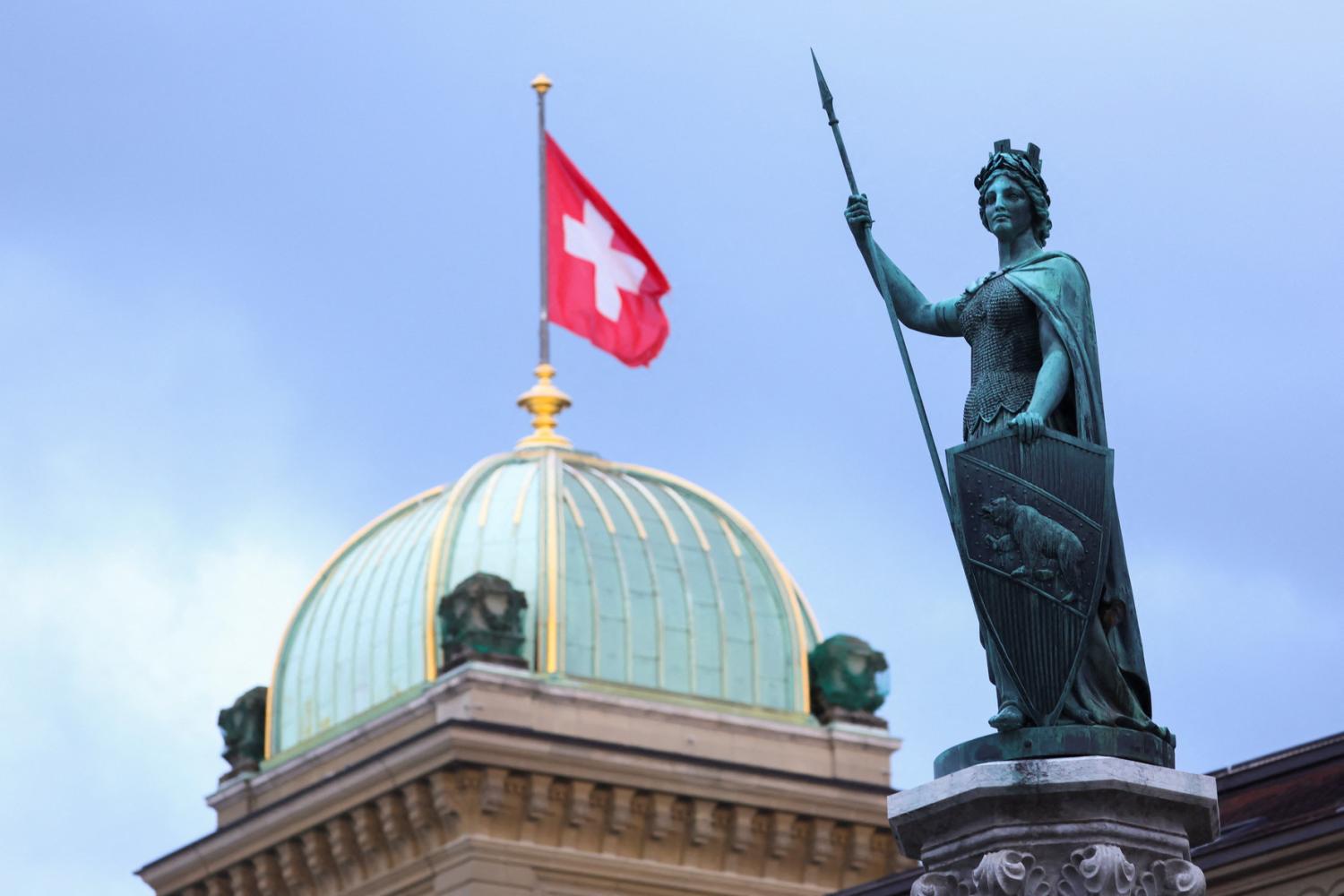Constanze Stelzenmüller

It is not difficult to list the contributions that Switzerland could make to Europe’s security; what is more interesting is the question of why it should do so. But one thing at a time.
Recently, Swiss journalist Roger de Weck told the Neue Zürcher Zeitung that his country is “the niche […] where things happen that are forbidden elsewhere.” The Swiss criminal law professor and corruption hunter Mark Pieth describes this somewhat whimsically as the “pirates’ harbor.” The aspects of Swiss politics they are referring to are well-known and regularly scrutinized in the established Swiss media. Their critique goes well beyond an understanding of neutrality that is increasingly alienating Switzerland’s neighbors and which—by way of example—prohibits even democratic neighbors from passing on armaments produced by former Swiss companies to a Ukraine fighting against a brutal aggressor.
Switzerland, which likes to see itself as a storm-tossed island of the blessed, is in reality the world’s largest (and very tolerant) offshore financial center. It has long been a hub for the global commodities trade and a huge magnet for seemingly endless flows of less-than-licit data, money, goods, and people that make up the dark underbelly of globalization. All of this is served by a dense and anything-but-transparent network of lawyers, consultants, and brokers.
Even before the Russian attack on Ukraine on February 24, 2022, this state of affairs was a nuisance to many other states. But in the context of Europe’s greatest security crisis since 1945, it allows the Kremlin to undermine Western sanctions (which Switzerland is at least participating in), thereby potentially prolonging the war. In geo-economic terms, this makes Switzerland a critical vulnerability in Europe’s security policy.
There are plenty of concrete proposals to close this security gap. Switzerland could create a supervisory authority for commodities trading; or even better, become part of international monitoring efforts. The G7 countries and the European Union would like to see Switzerland make more of an effort to close loopholes in the prosecution of sanctions-breakers; they are also calling for Bern to join the international REPO (Russian Elites, Proxies and Oligarchs) task force, which tracks down Russian kleptocrats’ hidden assets. After all, the Swiss Bankers Association itself estimates that at least 150 billion Swiss francs (approximately $171 billion) of Russian assets are held in Swiss accounts.
That leaves the question of why. Swiss media have a rather conspicuous habit of theorizing about “enormous pressure” from abroad. It is a bit reminiscent of Berlin, where policymakers or politicians often invoke “constraints” (circumstances, allies, norms) compelling them to act. And the Swiss banking secret was indeed brought down by the U.S. Treasury a decade ago.
And yet why would such a rich and powerful country, one of the 20 largest economies in the world and currently a non-permanent member of the U.N. Security Council, pretend that it is so much smaller and weaker than it is? Especially since Switzerland, unlike Germany, has elevated the principle of neutrality—the freedom not to take sides—to a raison d’etre. The contradiction is obvious.
Perhaps it is time for Bern to rethink the prerequisites for freedom of action in an age of strategic competition, a disintegrating world order, and the formation of blocs between democratic and autocratic powers. Switzerland is, of course, not an island, but rather a global player in a world economy that is becoming increasingly interdependent. It is also exposed to the weaponization of interdependence. Some might now point out that Switzerland is a passive beneficiary of the order of peace, law, and prosperity protected by NATO and the EU in Europe. But as a non-member, it has no voice or veto in the circle of these friends; it is a rule taker, not a rule maker.
NATO and the EU initially closed ranks against the impact of Russia’s aggression—which is directed not just at Ukraine but at the entire European order. Yet in light of the fact that Russia, China, Iran, and North Korea are increasingly finding common ground and that the so-called Global South is by no means taking the side of the victim and its allies, the West is currently on the defensive. And should Donald Trump or a Trumpist win the U.S. elections in November 2024, Europe would be quite lonely in the world—and Switzerland with it.
Will that propel Switzerland to suddenly seek protection in alliances or the EU? Or to eliminate its geo-economic vulnerabilities in order to offer Europe’s opponents one fewer entry point? Hardly. But the notion that its exposure is a national security gap and should be closed in the interests of its own freedom of action has just become rather more plausible.
No comments:
Post a Comment